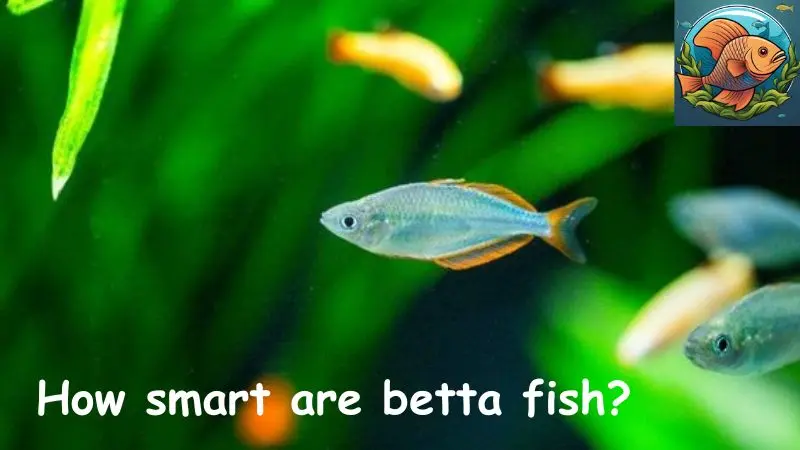marine life blog
How smart are betta fish?
The vibrant, flowing fins and captivating colors of betta fish have captivated aquarists for decades. These captivating creatures, often referred to as Siamese fighting fish, are more than just aesthetically pleasing additions to home aquariums. They possess a surprising level of intelligence and cognitive ability, challenging the common perception of fish as simple, instinct-driven creatures. While their intelligence may not rival that of mammals or birds, understanding the cognitive abilities of betta fish reveals a fascinating world of complex behaviors, social interactions, and problem-solving skills.
In today’s article, let’s learn more about how smart are betta fish with fishtankmagic.com!
How Smart Are Betta Fish?
Exploring the Cognitive Landscape: Beyond Instinct
The traditional view of fish intelligence often focuses on their instinctual responses to stimuli. This perspective, however, fails to acknowledge the nuanced cognitive abilities that many fish species, including bettas, possess. Betta fish exhibit a range of behaviors that suggest a level of intelligence beyond simple reflexes.
One key area where betta fish demonstrate cognitive abilities is in their memory. Studies have shown that bettas can remember specific locations, particularly those associated with food or shelter. This memory is not limited to short-term recall; they can retain information for extended periods, demonstrating a capacity for long-term memory. For instance, a betta fish that has been trained to associate a specific location with food will consistently return to that spot when seeking nourishment, even after a considerable time has passed.
Furthermore, bettas exhibit learning abilities. They can be trained to perform specific tasks, such as navigating mazes or responding to visual cues. This learning process involves recognizing patterns, associating actions with consequences, and adapting their behavior based on new information. This capacity for learning suggests that bettas are not simply reacting to their environment but actively processing information and making decisions based on their experiences.
Social Intelligence: Beyond Territorial Aggression
Bettas are often perceived as solitary and aggressive creatures due to their territorial nature. This perception, however, is a simplification of their social behavior. While male bettas are known for their aggressive displays towards other males, they exhibit a surprising degree of social intelligence when interacting with their own species.
For instance, bettas can recognize individuals within their social group. This recognition is not limited to visual cues; they can differentiate between individuals based on olfactory signals, indicating a sophisticated sense of smell. This ability to recognize individuals allows bettas to navigate complex social dynamics within their group, such as establishing dominance hierarchies and forming alliances.
Furthermore, bettas demonstrate communication skills beyond simple aggression. They utilize a variety of visual cues, including fin displays, body postures, and color changes, to communicate with each other. These visual signals convey information about their intentions, such as aggression, courtship, or submission. This complex communication system allows bettas to engage in nuanced social interactions, establishing territories, negotiating dominance, and even forming temporary alliances.
Problem-Solving Skills: Navigating the Environment
Betta fish are not merely passive inhabitants of their environment; they actively engage with their surroundings and demonstrate problem-solving skills. This is evident in their ability to navigate complex environments. They can learn the layout of their tank, identifying hiding spots, food sources, and potential threats. This spatial awareness allows them to efficiently explore their surroundings and exploit available resources.
Furthermore, bettas exhibit resourcefulness in obtaining food. They have been observed using their mouths to manipulate objects, such as bubbles or small pieces of food, to reach desired locations. This dexterity and ingenuity demonstrate their ability to adapt to their environment and find creative solutions to challenges.
The Limits of Betta Intelligence: A Comparative Perspective
While betta fish exhibit remarkable cognitive abilities, it’s important to acknowledge the limitations of their intelligence compared to other species. Their brain size and complexity are significantly smaller than that of mammals or birds, which limits their cognitive capacity.
However, comparing betta intelligence to other species solely based on brain size is an oversimplification. The evolution of intelligence is not solely driven by brain size; it’s influenced by a complex interplay of factors, including environmental pressures, social structures, and ecological niches. Betta fish have evolved specific cognitive abilities that are well-suited to their aquatic environment and social dynamics.
Implications for Betta Care and Enrichment
Understanding the cognitive abilities of betta fish has significant implications for their care and enrichment. Providing them with a stimulating environment that challenges their intelligence can enhance their well-being and prevent behavioral problems.
Here are some practical tips for enriching a betta’s environment:
- Tank Size and Complexity: Bettas thrive in larger tanks with plenty of hiding places, plants, and decorations. This provides them with opportunities to explore, exercise, and engage in problem-solving activities.
- Mental Stimulation: Provide them with puzzles, mazes, and toys that encourage exploration and problem-solving. This can include floating toys, mazes made of plastic tubing, or even small objects that they can manipulate with their mouths.
- Social Interaction: While male bettas should not be housed together, they can benefit from visual interaction with other bettas or even other species. This can help reduce boredom and provide mental stimulation.
- Dietary Variety: Offer a varied diet that includes live foods, frozen foods, and high-quality flakes. This provides them with a diverse range of nutrients and challenges their foraging instincts.
Conclusion: Unveiling the Hidden Intelligence of Betta Fish
The fascinating world of betta fish extends far beyond their vibrant colors and graceful movements. They possess a surprising level of intelligence, demonstrating memory, learning, social intelligence, and problem-solving skills that challenge the traditional view of fish as simple creatures.
By understanding the cognitive abilities of betta fish, we can provide them with enriching environments that foster their well-being and enhance their lives. This knowledge not only improves our care for these captivating creatures but also expands our understanding of the diverse and complex world of animal intelligence.












